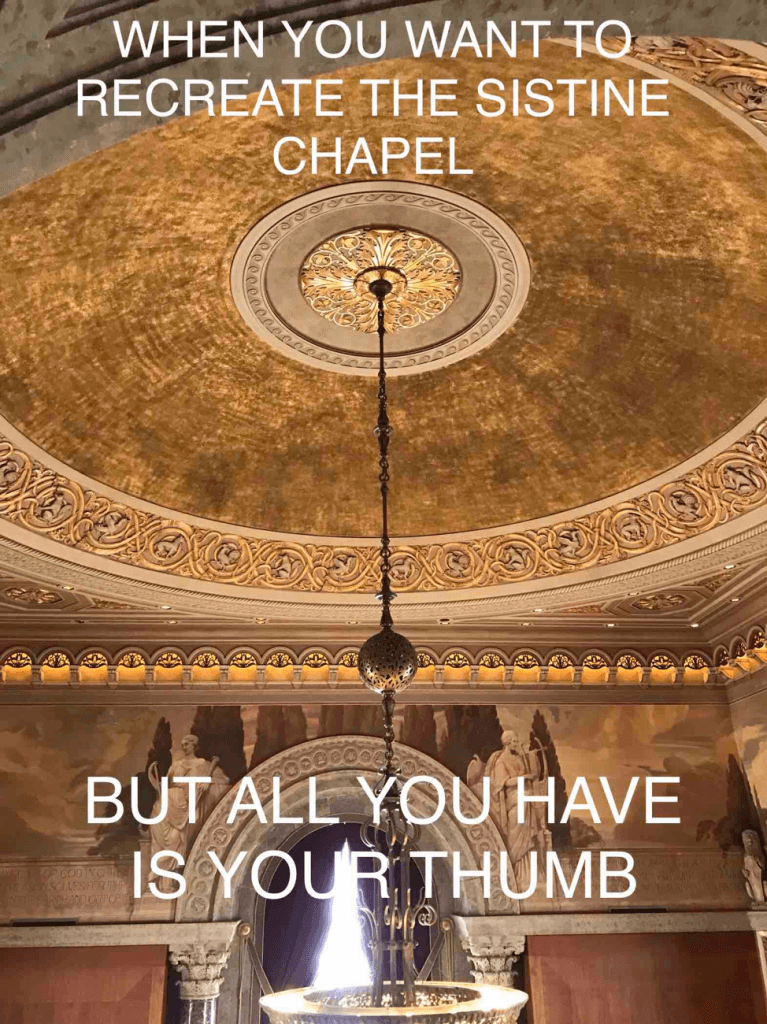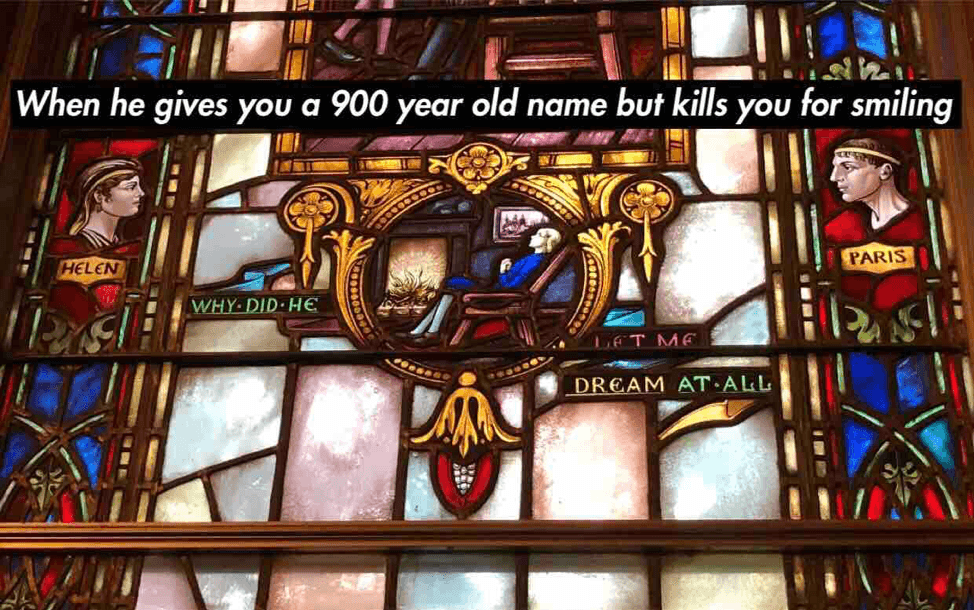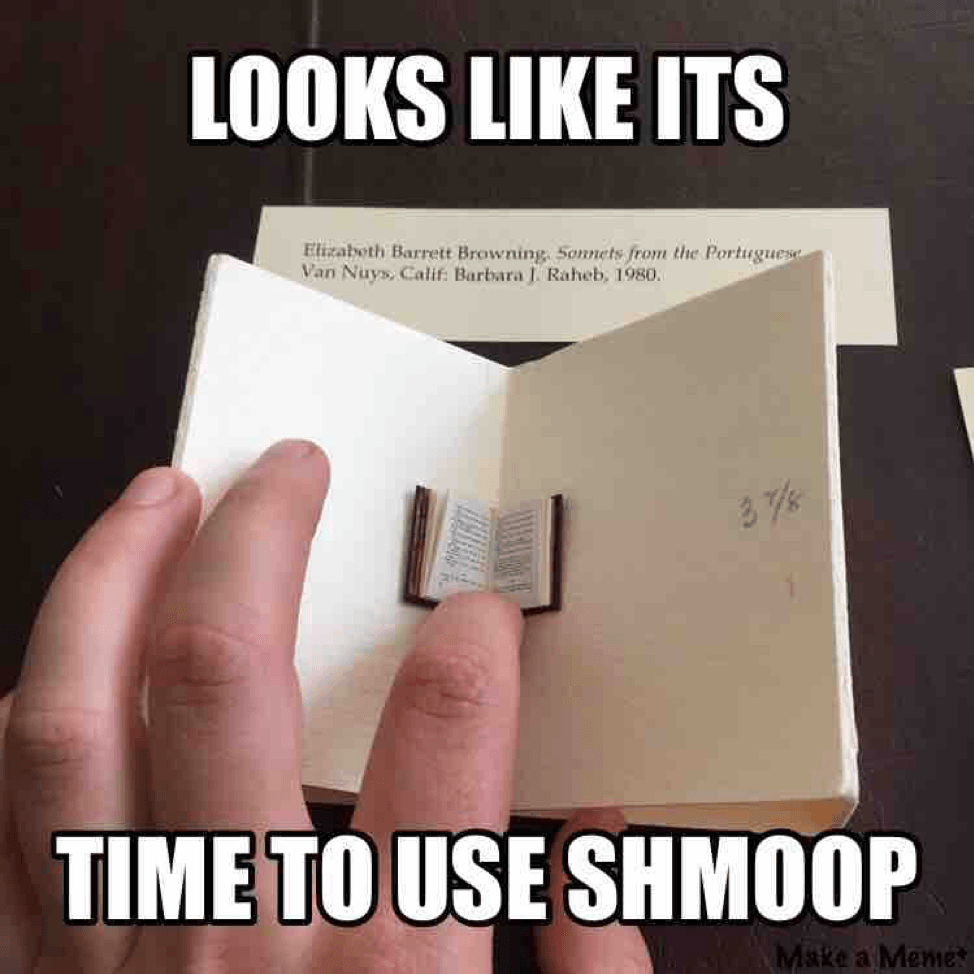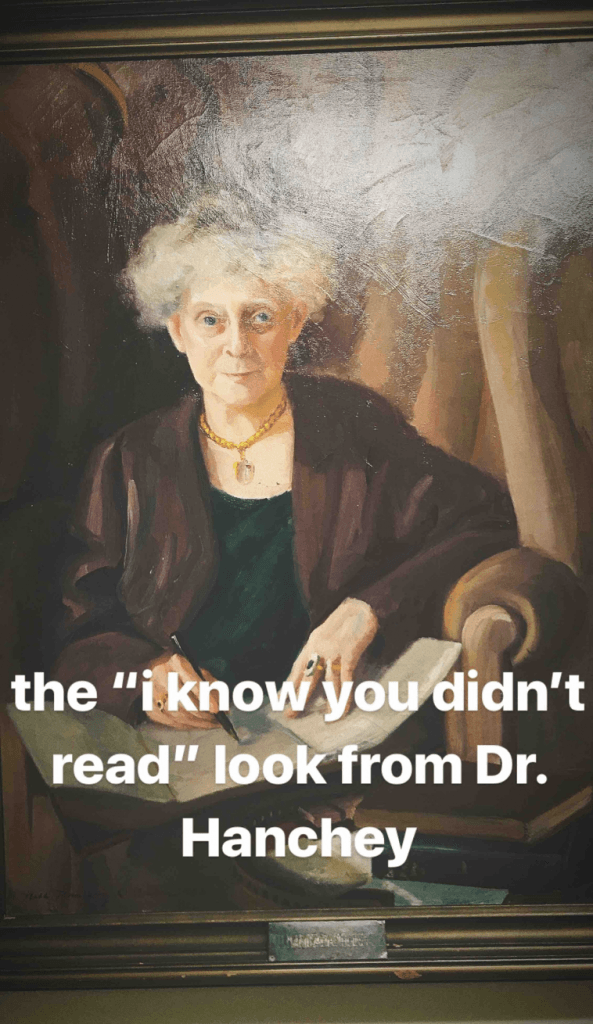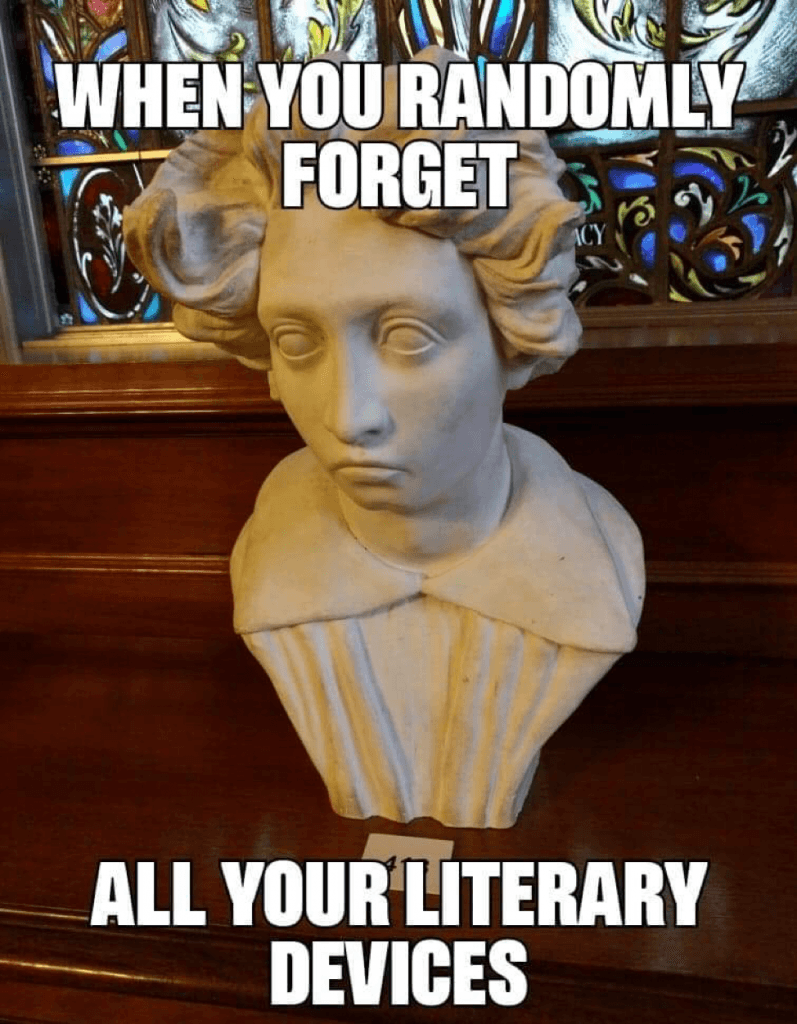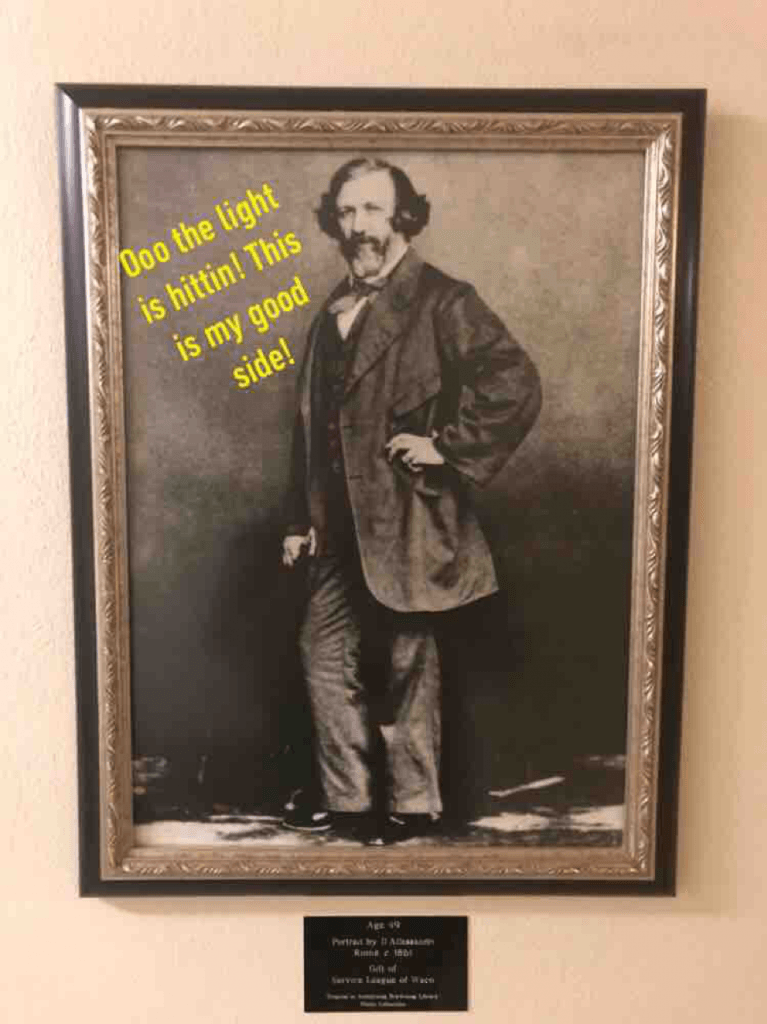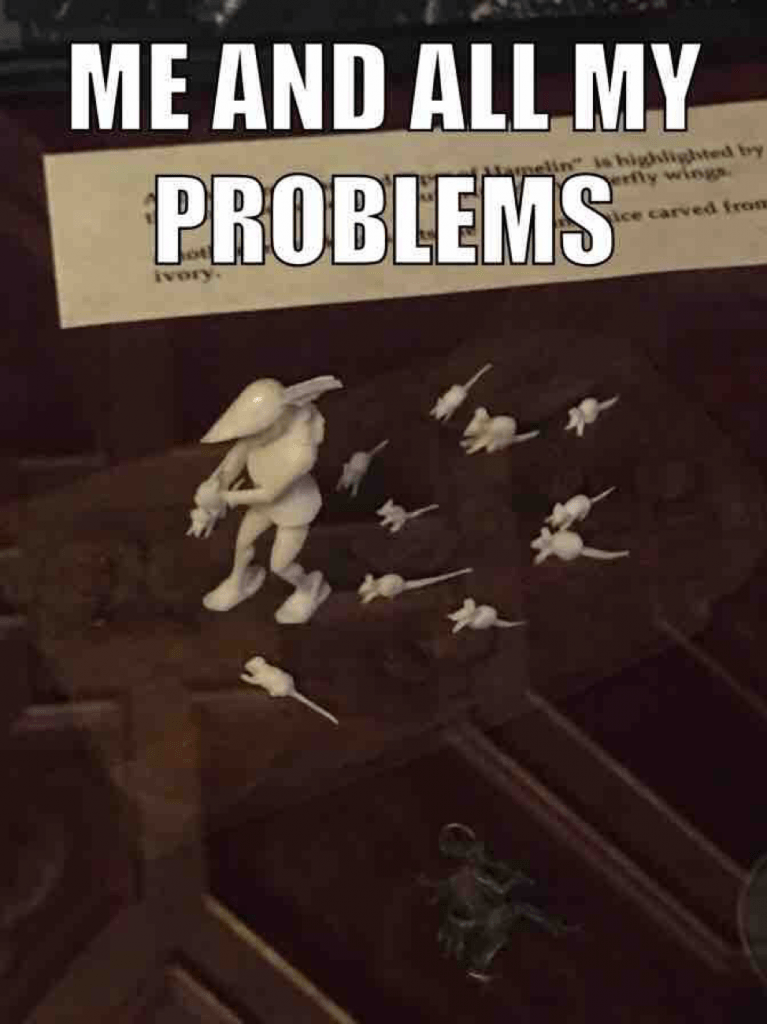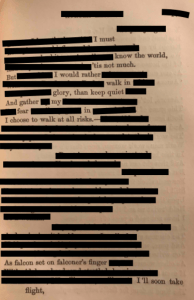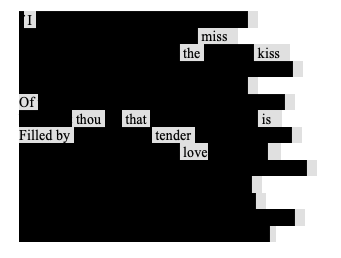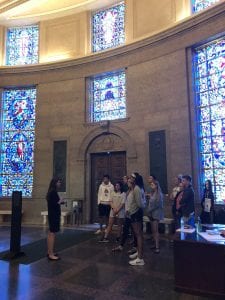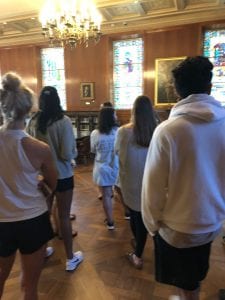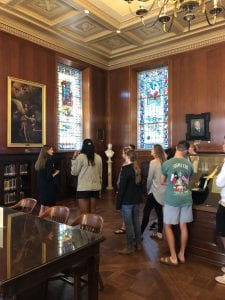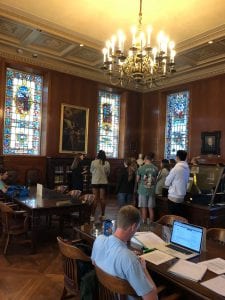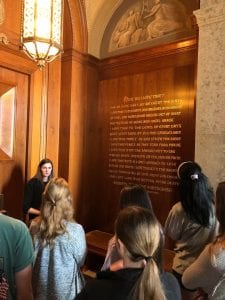This post is by Ginger Hanchey, PhD, Department of English, Armstrong Browning Library Teaching Fellow 2018
For this project students in my ENG 2301: British literature survey class spent two days in the Armstrong Browning Library and later wrote an original poem that was somehow inspired by their experience.
On one library day the students toured the ABL and created a meme at the end of class. On the other visit they perused a collection of specially curated materials intended to give them a sense of life in Victorian England. Topics included the anti-slavery movement, the making of poetry, the question of women’s rights and roles, and the concerns surrounding child labor and other working-class issues.
This unit turned out to be fun and instructive, giving students a new way to think about creativity and the importance of libraries and scholarship.
My Goals for the Unit:
- Add poetry of Elizabeth Barrett Browning to course syllabus (and in doing so diversify the male-heavy list a little more)
- Introduce students to the world class Armstrong Browning Library and help them feel a sense of pride and membership in it
- Help students consider how a research library and museum helps the Brownings’ poetry—their ideas about life and beauty—continue to influence the world so long after their deaths
- Introduce students to higher-level research methods
- Introduce students to diverse research resources
- Help students gain an understanding of poetry reception
- Help students gain an understanding of the lives and culture of Robert and Elizabeth Barrett Browning
- Provide an opportunity for students to join the tradition of poem-making by creating their own erasure poem out of ABL materials they have collected, or by creating a poem inspired by their time in the ABL
- Provide an opportunity for students to practice essay writing skills by reflecting on the experience in a brief essay
Here is a link to the assignment description.
Tour Memes
As you can see from the assignment description, students were encouraged to enjoy themselves on the tour. All they had to do was listen and take pictures and at the end of the hour they made memes from what they saw. Here are just a few of our favorites, but really all were excellent and made us laugh:
(A few bits of inside information before you read: The golden dome of the ABL was made with thumbprints. Robert Browning called his published pamphlets Bells and Pomegranates and the bell and pomegranate motif appears throughout the ABL.)
- Daniel Yoo
- Jillian Ermis
- Clark Coneby
- Lathan Lucas
- Devin Gary
- Jordan Greer
- Andrew Baas
- Lexi Fowlkes
- Sadie Schiffmacher
- Gia Gulino
Poems
The poems were submitted about two weeks after our last day in the ABL. Students were told their poems should 1.) use only necessary words, 2.) offer a fresh thought, and 3.) use interesting artistic devices like the ones we have been studying in class.
In addition to a poem, students submitted a brief essay outlining what they tried to achieve through their poem and how they felt about the process and the final product.
These projects turned out exceptionally well. I was surprised that the essays were often as thoughtful and beautiful as the poems. I was also surprised how much more I learned about each student through their creative works and reflections than I otherwise would have.
Here are a few examples:
Nathan Barker
Fall
Even the children work and run,
as God falls fast sleep,
before the barrel of a gun
by white fields, and gray trees
In shackles and chains they awake
as God falls fast asleep,
lives dependent on what they make,
to masters they are fleas
Human souls are whipped, even killed
as God falls fast asleep,
for nature of skin, forced to build,
land watered as they bleed
Fallen man runs a fallen world,
as God falls fast asleep,
for deepest crimes ever unfurl,
goodness itself seems beat
As God falls fast asleep
_________________________________________
Megan Mann
Gazing up, a thousand stars twinkle in sincerest reply
The sky’s very own inlaid gold, gently pressed into the sea of black
Too many to count, the world’s private eyes
Their gaze on the earth, omnipotent
Welcome the hope filled eyes of lovers new
Who never see the stars burn out, the gold falling to the ground, think love infinite
Their hands fold delicately together, to have and to hold
A perfect fit against all odds
A design grandeur than the universe, bathed in the light of gold
My poem was inspired by the architecture of the Armstrong Browning library as well as
the bronze statue depicting Robert and Elizabeth Browning’s hands. Specifically, the gold ceiling
in the great room of the library served as a major source of inspiration as I wrote my poem. The
delicate nature of the gold, as well as the painstaking time and energy placed into pressing it
into the ceiling, caught my attention early on in the tour. It is said that all the gold that fell to
the ground during its application was meticulously swept up by Mrs. Armstrong, an image that
stayed with me as I wrote my poem. The whole ceiling seemed to parallel the Browning’s love;
brilliant and infinite yet not always the easiest thing to obtain or maintain. This ceiling
overlooks the room where many young lovers get engaged, therefore it is the private eye and
witness to the union of two souls. My poem indulges in the speculation that young love is naïve
and fleeting, a viewpoint not seen very often at Baylor. I likened the gold in the ceiling to the
stars in the sky, for the very nature and ending of stars is unknown. The sculpture of the
Browning’s hands was another important point of inspiration for me. This gesture is the most
delicate and meaningful between two lovers. The strength imparted by becoming one unit is
seen by holding hands. To me, the design of hands seems to have been made by God. A
soulmate will fit perfectly into their counterpart, as part of a plan that I believe is greater than
- This poem was very easy to imagine in my mind but upon having to write it down became
more difficult to articulate. Finding a rhythm within my poem was also a difficult task for me,
but this was helped through the utilization of a rhyme scheme. The composition of this poem
was a challenge but the imagery and ideas told by this poem were rewarding. I am glad that I
was able to experience how to write a poem and how to articulate my feelings through this art
form.
_________________________________________
Lauren Anz
I wanted to discuss Feminism in the poem I wrote. Elizabeth Barrett Browning and how she held feminist ideas that were ahead of her time inspired me. I also wanted to use a poem or an excerpt that portrayed women in a certain way and I wanted to draw on the feminism today. I hope my poem conveys that as women we do not have to be silent in our thoughts and beliefs. The line that says, “But I would rather walk in glory, than keep quiet” is supposed to signify that death would be more peaceful than being forced to keep our thoughts and ideas to ourselves. I wanted to portray a strength in women and that our thoughts hold value. The rest of the poem discusses the idea that there is fear that comes with speaking out and that regardless of the risk. I want to continue to be an example of a strong woman. I think there is so much freedom in being heard and that is what the ending of the poem signifies to me.
This process was a little difficult for me because often times I will put the cart before the horse. I was already coming up with poetry in my head, but that was not what the assignment was. It was hard for me to find a work that really spoke to me and could convey the message that I had in my head already. I felt excited when I finished the poem because I think it came out better than something I could’ve written from scratch. I enjoyed being able to put my ideas into a new form and explore a new creative medium.
_________________________________________
Jenna White
_________________________________________
Megan Winters
Pomegranates
Pomegranates are poems
eat one whole
hard, tough, bitter,
unappetizing.
Pomegranates are poems
distasteful,
unyielding.
Until it’s cut open
Pomegranates are poems
with many small fruits inside
brought out by tools
Pomegranates are poems
enjoyable,
inspirational.
Pomegranates are poems
many fruits in one
many muses,
many parts,
many uses,
Only once the inside is reached.
_________________________________________
Sarah Yocum
Erasure poem created from: Sonnets from the Portuguese 35: If I leave all for thee, wilt thou exchange by Elizabeth Barrett Browning
My poem was inspired by the collection of Elizabeth Barrett Browning’s Sonnets from the Portuguese that we viewed when we were observing some of the writings the Brownings produced. Her passion for Robert was beautiful, and being able to flip through the collection of sonnets was surreal. Learning about the Browning’s relationship and marriage was one of my favorite parts of this project because I am in a long distance relationship with my boyfriend and it was encouraging to see how their love blossomed, despite the distance they had between them. I wanted to use Elizabeth Barrett Browning’s message to create my own romantic message to my boyfriend. They didn’t have the luxury of cell phones back then, they had letters. I can not even begin to imagine how difficult it would be to nourish a relationship like that. Elizabeth’s love letters to Robert were beautiful to me, so I used the 35th Sonnet to create my own message to my “Robert.” I am actually planning on showing him my poem over Christmas break when I get to see him, and I hope he understands how much he means to me and how often I think about him. We have not seen each other since the Fourth of July because he had to go back to Virginia for football. More than anything, I wish I could hug him and kiss him, and the statement of my poem reflects that. I really enjoyed making this poem because the idea of pulling a message from a larger piece through erasure has always fascinated me. It was somewhat frustrating trying to put together an idea that I could reveal a deep message with by only using the words in the order they were provided. However, Elizabeth Barrett Browning used many expressional words that made it easy to pull romantic ideas from. Ultimately, I am very happy with the result of my poem and I am interested in continuing to dabble in erasure poetry.
_________________________________________
Catherine Stokes
The Old Mirror
I saw an old mirror in the library
On display in a room visited by few
Its form was delicate
Its contents were resilient
I stared into the yellowed pages of the old mirror
I saw reflected at me,
The beginnings of something familiar
The beginnings of something incredible
I saw my luxuries as her battles
I saw my common sense as her revolution
I can shout because she could only whisper
But those whispers echoed through the mirror to me
I saw her battle cries written in discreet letters
Our battle cries ring out in the same key
Our fights are mirrored
Freedom for women, children, and minorities
Her fight would be inherited
I saw my world reflected in her aspirations
I wanted to cry out to her
Her ideas would change the world
Then, I remembered that I was looking in a mirror
Someone, someday, would be looking at me
Through the same mirror
And I was filled with determination
For the poem I have written, I chose the images of the books and letters themselves. I tried to channel my feelings when reading them. When looking at the books and letters, I saw reflections of our own society beginning to emerge in the literature. Therefore, I wrote the poem about a mirror. I wrote as if the books and letters themselves, were a mirror. This is how I was able to compare the past and the present in one image. I wanted to portray a feeling of seeing oneself in these books. Some of the ideas that seem like common sense now were so radical and extreme back in their time. I also wanted to invoke a feeling of gratitude for these women. Whether their views were about women’s rights, child labor, or slavery, these women had a much more difficult time being vocal about these views than we do. In the poem, I wanted to be able to tell them how the world has changed because of their efforts and the efforts of everyone through time that fought for the liberties we take for granted today. I am aware it has no rhyme or rhythm, but I hope that it has enough emotion and meaning to still be considered poetry. It was the most difficult to depict my feelings while being as artful as possible, so it could still be considered art.
I mentioned that it is up to us, now, to continue their efforts and to always use our voices as fearlessly as they did. My hope is that someday, the things that we are fighting for today will seem like common sense to those reading 21st century literature in the future. Our actions today will be seen in a similar way as we are looking at the actions and words of these women. This was the most rewarding part.
The line at the end about determination is actually a subtle homage to my favorite video game. In the game, determination is a substance that human souls possess that allow them to persist after death. It might be a little dumb, but part of me feels like it fits here, as if these writings have allowed the authors’ souls to persist after death and inspire future readers.
Fall 2018 Class Visit Photos
- ENG 2301 class visit, Fall 2018
- ENG 2301 class visit, Fall 2018
- ENG 2301 class visit, Fall 2018
- ENG 2301 class visit, Fall 2018
- ENG 2301 class visit, Fall 2018
- ENG 2301 class visit, Fall 2018
- ENG 2301 class visit, Fall 2018
